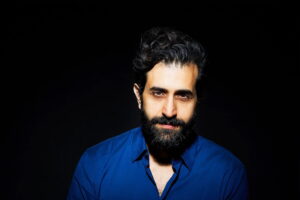2025/2026 Season Premieres
- On August 31, 2025
- By alzand@rice.edu
- In EVENTS, News
 0
0
The 2025-2026 season will feature the world premiere of two major new works: The Strangers’ Case, an extended song cycle for tenor and string orchestra and A Joint Interest, a comic chamber opera for three singers and ensemble.
The Strangers’ Case, written for Grammy Award winning tenor Karim Sulayman, will be performed in Houston on March 28th, as a co-presentation of the dynamic conductorless string orchestra Kinetic and pioneering new music presenters Musiqa. A performance in Boston’s Jordan Hall on May 9th by Grammy-Nominated ensemble A Far Cry will follow.
Subtitled <songs and chronicles of the immigrant experience>, The Strangers’ Case gathers together poems, personal accounts and other literary sources from newcomers to the United States. Drawing on texts from a variety of cultures, voices and time periods, it paints a layered emotional narrative of our complicated history with “strangers” to our shores. Its title is borrowed from Shakespeare’s monologue for Thomas More, which eloquently argues for empathy and compassion towards displaced people. Several of its texts are taken from a unique 1906 publication entitled Life Stories of Undistinguished Americans as Told By Themselves, a series of personal, turn-of-the-century accounts by immigrants to the United States: “Lady in the Harbor” is the story of a young Polish girl destined for the textile sweatshops, and “Such an Illumination” is from a Syrian refugee fleeing persecution in his homeland. “Island of Angels” excerpts lines written in the wake of the 1882 Asian Exclusion Act. This anonymous poem,
Several of its texts are taken from a unique 1906 publication entitled Life Stories of Undistinguished Americans as Told By Themselves, a series of personal, turn-of-the-century accounts by immigrants to the United States: “Lady in the Harbor” is the story of a young Polish girl destined for the textile sweatshops, and “Such an Illumination” is from a Syrian refugee fleeing persecution in his homeland. “Island of Angels” excerpts lines written in the wake of the 1882 Asian Exclusion Act. This anonymous poem,  translated from the Chinese, was found inscribed on the wooden walls of a San Francisco Bay immigrant detention facility. The cycle also includes a remarkable and prescient 1908 poem by Arthur Upson, “The Statue of Liberty (New York Harbor, A.D. 2900)” that imagines the New York harbor of the far future: the Statue of Liberty is unearthed, sunken in the mire, discovered by a “tyrant who misrules our land.”
translated from the Chinese, was found inscribed on the wooden walls of a San Francisco Bay immigrant detention facility. The cycle also includes a remarkable and prescient 1908 poem by Arthur Upson, “The Statue of Liberty (New York Harbor, A.D. 2900)” that imagines the New York harbor of the far future: the Statue of Liberty is unearthed, sunken in the mire, discovered by a “tyrant who misrules our land.”
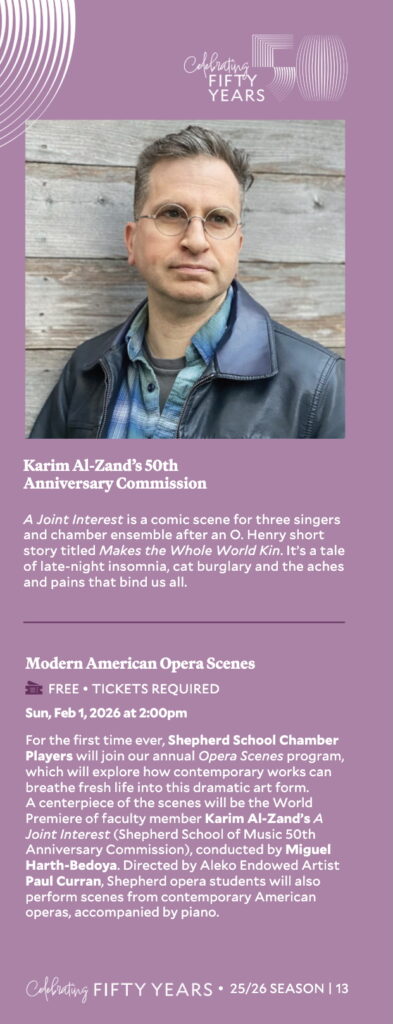 A Joint Interest was commissioned by the Shepherd School of Music on the occasion of its 50th anniversary. The libretto is a modern re-telling of O. Henry’s “Makes the Whole World Kin,” a classic yarn from America’s beloved short-story writer. A chamber opera buffa, A Joint Interest is a comic scene of late-night insomnia, cat burglary, and the aches and pains that bind us all. The performance, led by Director of Orchestras, Miguel Harth-Bedoya, Professor of Opera Studies, Joshua Winograde, director Paul Curran, and a stellar cast of student singers and instrumentalists, will have its premiere Sunday February 1st on the Shepherd School’s stunning Morrison Theater stage.
A Joint Interest was commissioned by the Shepherd School of Music on the occasion of its 50th anniversary. The libretto is a modern re-telling of O. Henry’s “Makes the Whole World Kin,” a classic yarn from America’s beloved short-story writer. A chamber opera buffa, A Joint Interest is a comic scene of late-night insomnia, cat burglary, and the aches and pains that bind us all. The performance, led by Director of Orchestras, Miguel Harth-Bedoya, Professor of Opera Studies, Joshua Winograde, director Paul Curran, and a stellar cast of student singers and instrumentalists, will have its premiere Sunday February 1st on the Shepherd School’s stunning Morrison Theater stage.
“The burglar stepped inside the window quickly, and then he took his time. A burglar who respects his art always takes his time before taking anything else.” O. Henry (Makes the Whole World Kin)
A complete list of 2025-2026 season performances can be found in the events listing.
Banff Interplay Opera Workshop
- On July 30, 2025
- By alzand@rice.edu
- In EVENTS, News
 0
0
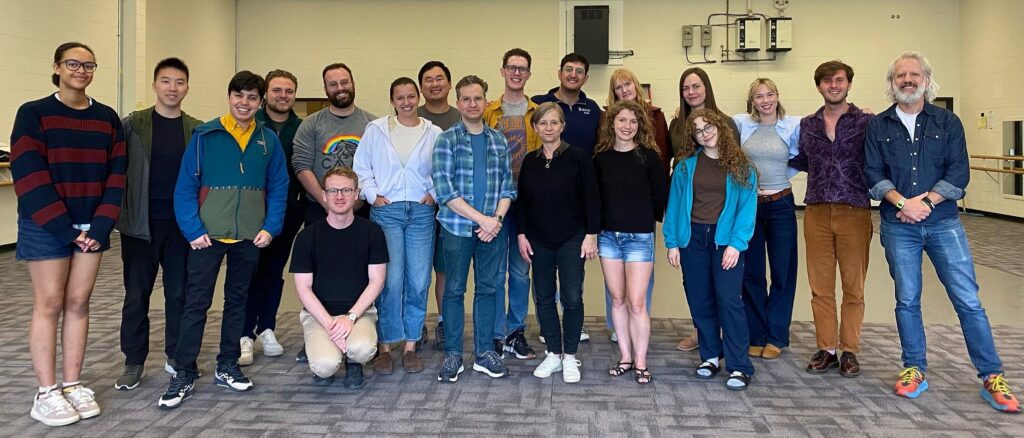 The 2025 Interplay program at the Banff Centre for Arts and Creativity showcases young singers and instrumentalists in both opera and chamber music performance. Their July 27th show, “An Evening with Karim Al-Zand” followed two weeks of rehearsals and workshops on new scenes, songs and other vocal music. The concert included workshop performances of The Strangers’ Case, A Joint Interest and two scenes from the forthcoming opera project The Book of Tales, plus select solo songs. [Preview from Winnipeg’s Classic 107.] The artists were guided in the workshops by a range of faculty including director Joel Ivany, conductor Sandra Horst and pianist Spencer Kryzanowski.
The 2025 Interplay program at the Banff Centre for Arts and Creativity showcases young singers and instrumentalists in both opera and chamber music performance. Their July 27th show, “An Evening with Karim Al-Zand” followed two weeks of rehearsals and workshops on new scenes, songs and other vocal music. The concert included workshop performances of The Strangers’ Case, A Joint Interest and two scenes from the forthcoming opera project The Book of Tales, plus select solo songs. [Preview from Winnipeg’s Classic 107.] The artists were guided in the workshops by a range of faculty including director Joel Ivany, conductor Sandra Horst and pianist Spencer Kryzanowski.
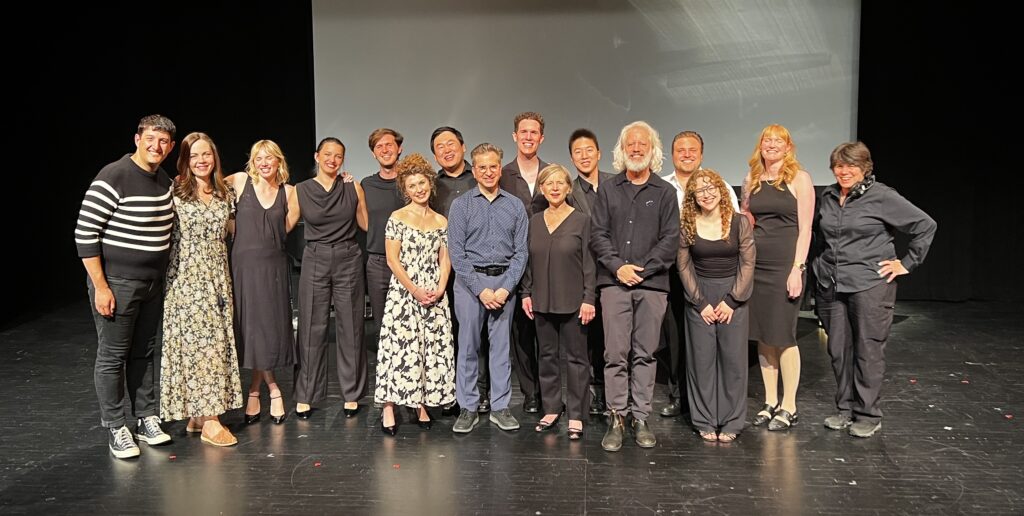
New Film of The Prisoner featuring Christopher Bozeka
- On June 18, 2025
- By alzand@rice.edu
- In News, Performances
 0
0
From an April 2025 Musiqa presentation of The Prisoner, in a new chamber transcription featuring tenor Christopher Bozeka, and conducted by Emily Senturia. Film by Full Media Jacket
CBC Radio Canada Feature: The Revelation Hour
- On June 10, 2025
- By alzand@rice.edu
- In News, Reviews/Press
 0
0
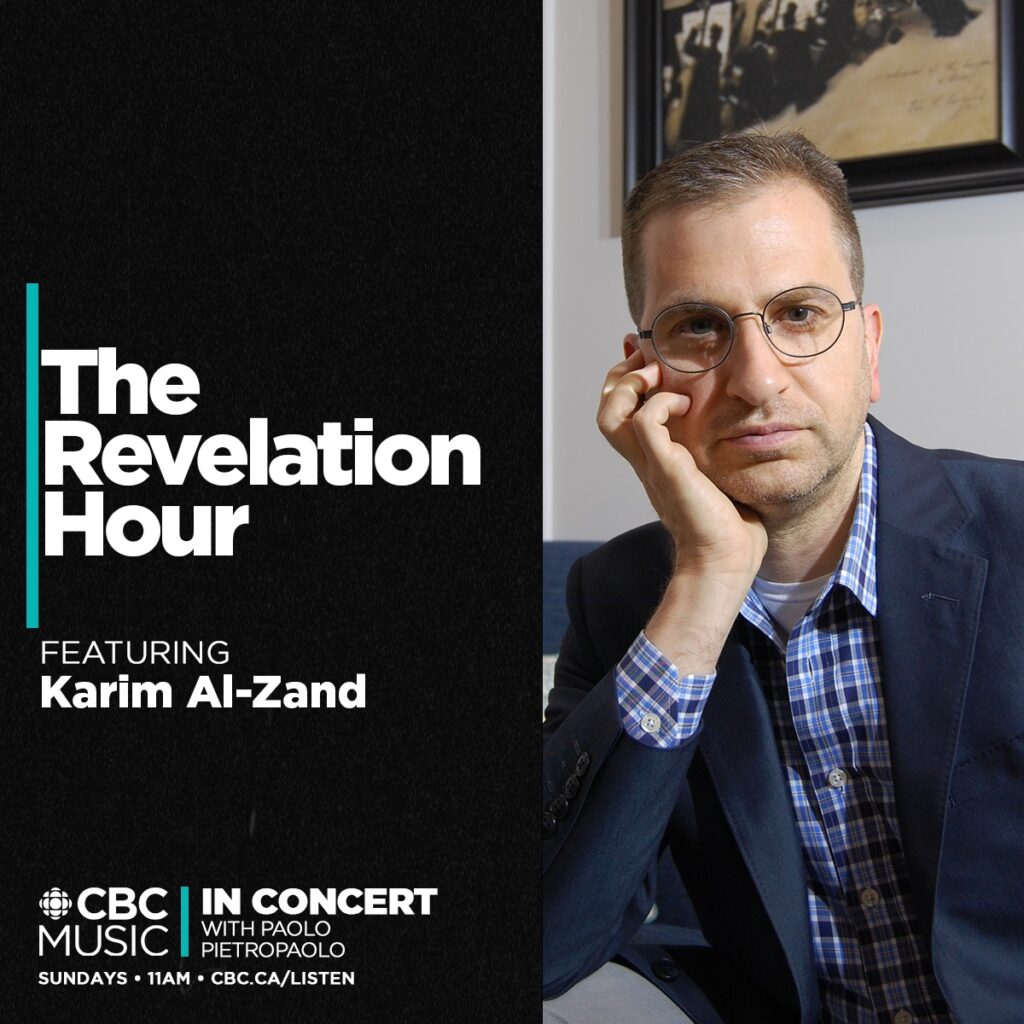 The June 7-8th edition of CBC Radio Canada’s In Concert, broadcast nationally and hosted by Paolo Pietropaolo, will include a feature on my music as its The Revelation Hour. Now available free on demand. The broadcast includes performances of Six Bagatelles, Visions from Another World, Paganini Reverie and Al Hakawati.
The June 7-8th edition of CBC Radio Canada’s In Concert, broadcast nationally and hosted by Paolo Pietropaolo, will include a feature on my music as its The Revelation Hour. Now available free on demand. The broadcast includes performances of Six Bagatelles, Visions from Another World, Paganini Reverie and Al Hakawati.
Musiqa Welcomes New Board Member Maiko Sasaki
- On June 10, 2025
- By alzand@rice.edu
- In Musiqa, News, Reviews/Press
 0
0
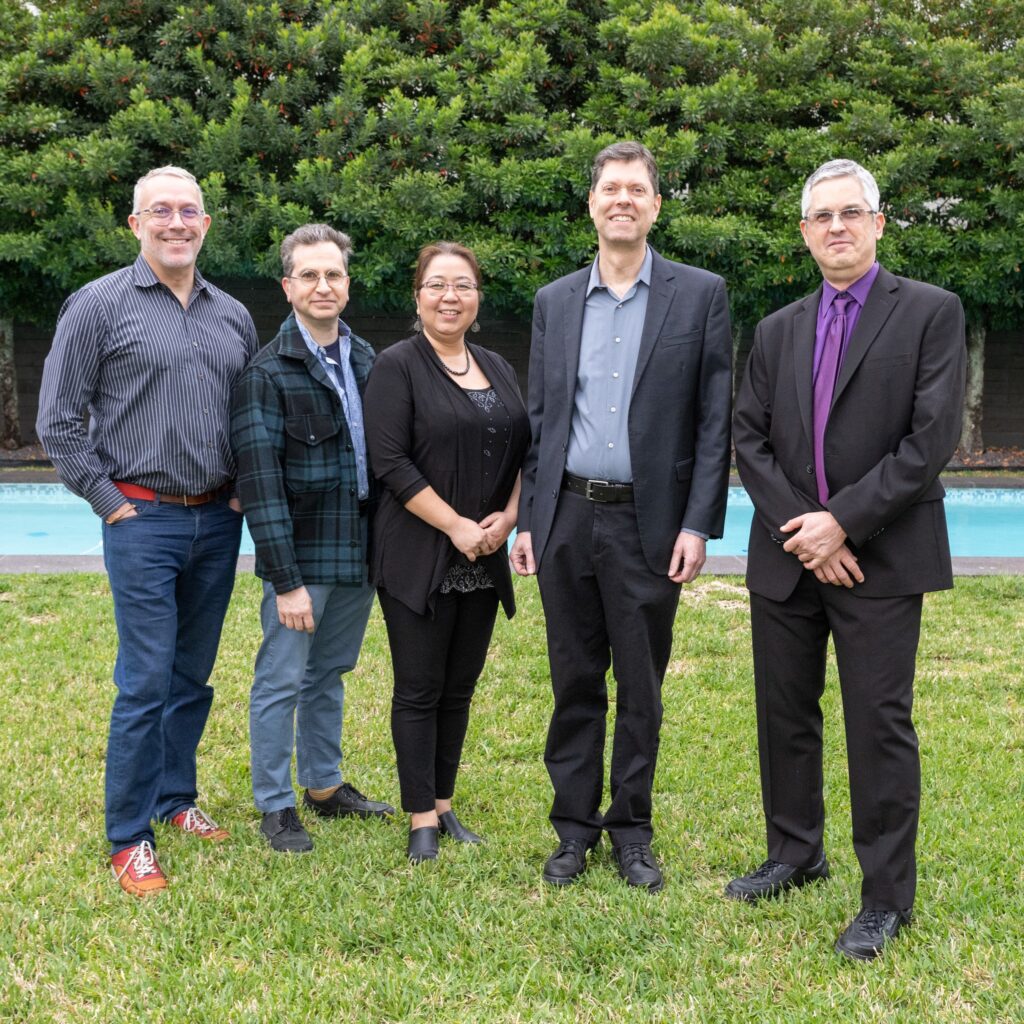 Musiqa Artistic Board (L to R): Marcus Maroney, Karim Al-Zand, Maiko Sasaki, Pierre Jalbert, Anthony BrandtMusiqa is proud to welcome Maiko Sasaki to our artist board! Maiko is a distinguished clarinetist known for her dynamic performances as a soloist, chamber musician, and orchestral player. A regular performer onstage with Musiqa, she joins founding artist board members Karim Al-Zand, Anthony Brandt, Pierre Jalbert and Marcus Karl Maroney in their ongoing quest to bring adventurous and inspiring programming to our audiences.
Musiqa Artistic Board (L to R): Marcus Maroney, Karim Al-Zand, Maiko Sasaki, Pierre Jalbert, Anthony BrandtMusiqa is proud to welcome Maiko Sasaki to our artist board! Maiko is a distinguished clarinetist known for her dynamic performances as a soloist, chamber musician, and orchestral player. A regular performer onstage with Musiqa, she joins founding artist board members Karim Al-Zand, Anthony Brandt, Pierre Jalbert and Marcus Karl Maroney in their ongoing quest to bring adventurous and inspiring programming to our audiences.


